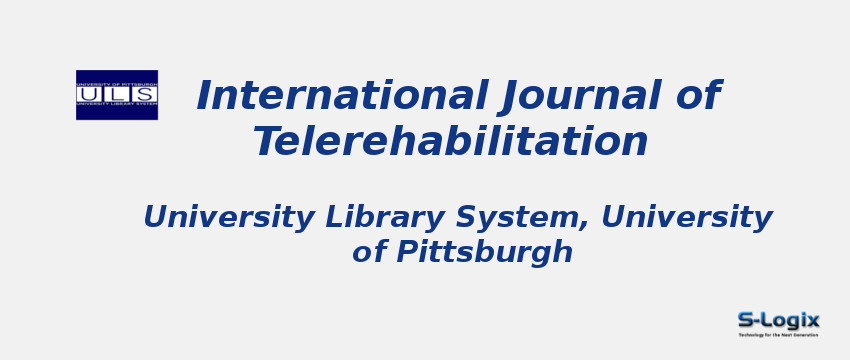Journal Home: Journal Homepage
Editor-in-Chief: Jana Cason
Print ISSN: 19452020
Electronic ISSN:
Abstracting and Indexing: Scopus
Imapct Factor :
Subject Area and Category: Computer Science, Computer Science Applications, Health Professions, Health Information Management, Medicine, Health Informatics, Rehabilitation
Publication Frequency:
H Index: 17
Q1:
Q2: Rehabilitation
Q3:
Q4:
Cite Score: 4.1
SNIP: 0.763
Journal Rank(SJR): 0.533
Latest Articles: Latest Articles in International Journal of Telerehabilitation
Guidelines for Authors: International Journal of Telerehabilitation Author Guidelines
Paper Submissions: Paper Submissions in International Journal of Telerehabilitation
Publisher: University of Pittsburgh
Country: United States
